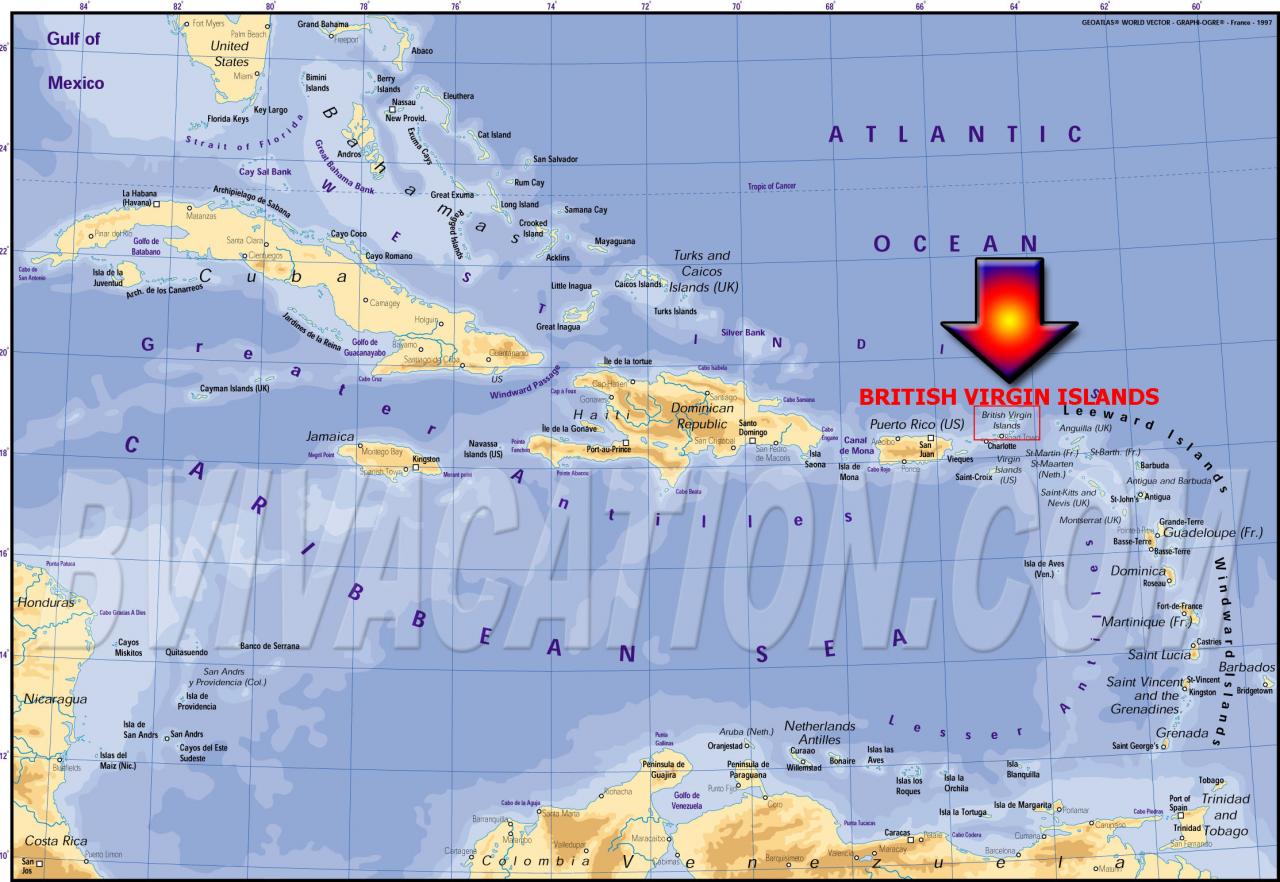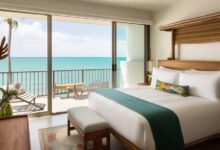Comparing the British Virgin Islands with other Caribbean islands for retirement
Comparing the British Virgin Islands with other Caribbean islands for retirement sets the stage for a comprehensive analysis of this popular lifestyle choice. This exploration delves into the crucial factors retirees consider: cost of living, healthcare access, visa requirements, climate, lifestyle, infrastructure, and safety. By comparing the BVI with other favored destinations like Barbados, Belize, and St. Lucia, we aim to provide a clear and balanced perspective, enabling prospective retirees to make informed decisions aligned with their individual needs and preferences.
The detailed comparison will encompass various aspects, from financial considerations and healthcare systems to cultural nuances and infrastructural amenities, offering a holistic view of retirement in these idyllic locations.
Cost of Living Comparison
Choosing a Caribbean island for retirement involves careful consideration of various factors, with cost of living being paramount. This section compares the cost of living in the British Virgin Islands (BVI) with Barbados, Belize, and St. Lucia, focusing on housing, groceries, healthcare, and transportation. While precise figures fluctuate, this analysis offers a comparative overview based on recent data and anecdotal evidence.
When comparing the British Virgin Islands to other Caribbean islands for retirement, environmental factors are key. A significant consideration is the commitment to sustainable practices, as evidenced by the robust initiatives detailed in this report on Sustainable tourism initiatives and eco-friendly resorts in the British Virgin Islands. This focus on eco-conscious tourism impacts the overall quality of life and contributes to a more appealing retirement destination compared to some other islands in the region.
Cost of Living Breakdown Across Islands
The cost of living varies significantly across these Caribbean islands, reflecting differences in economic development, import reliance, and tourism infrastructure. Generally, the BVI tends to be more expensive than Belize, with Barbados and St. Lucia falling somewhere in between. However, specific costs can vary greatly depending on lifestyle choices and location within each island.
| Island | Housing (Monthly Rent/Mortgage) | Groceries & Utilities (Monthly) | Healthcare & Transportation (Monthly) |
|---|---|---|---|
| British Virgin Islands | $1500 – $5000+ (depending on location and size) | $500 – $1500 (higher for imported goods) | $500 – $1000+ (healthcare can be expensive; transportation costs vary based on car ownership) |
| Barbados | $1000 – $3000+ | $300 – $800 | $300 – $700 (generally more affordable healthcare options than BVI) |
| Belize | $500 – $2000+ (significantly lower than other islands) | $200 – $500 (lower cost of living overall) | $200 – $500 (healthcare and transportation generally less expensive) |
| St. Lucia | $800 – $2500+ | $300 – $700 | $300 – $600 |
Note: These figures are estimates and can vary considerably depending on individual lifestyle and preferences. Luxury accommodations and imported goods will significantly increase costs in all locations.
Tax Implications for Retirees
Tax regulations for retirees differ significantly across these islands. Understanding the tax implications is crucial for accurate budget planning.The BVI, for example, does not have a direct property tax, but other taxes might apply. Barbados offers tax concessions for certain types of retirement income, while Belize’s tax system is relatively straightforward with a progressive income tax structure. St.
Lucia also has a system of income taxes, but specific concessions for retirees may vary and require further investigation. It is strongly recommended to seek professional financial and legal advice tailored to individual circumstances before making any decisions regarding retirement in any of these locations. Specific tax laws are subject to change, so consulting updated official sources is essential.
Healthcare Systems and Access

Source: bvivacation.com
Choosing a Caribbean island for retirement involves careful consideration of healthcare access and quality. While many islands boast beautiful scenery and a relaxed lifestyle, the healthcare infrastructure and accessibility vary significantly. This section compares the healthcare systems of the British Virgin Islands (BVI) with those of other popular Caribbean retirement destinations, highlighting key differences and potential challenges for retirees.The BVI, while possessing a modern healthcare system relative to some other islands in the region, relies heavily on private healthcare providers.
Public healthcare is available but often limited in scope and specialist services. In contrast, some larger islands like Barbados and Jamaica offer a more comprehensive blend of public and private healthcare options, although the quality can fluctuate depending on location and specific facilities. Smaller islands may have more limited resources and necessitate medical evacuations for serious conditions.
Healthcare Quality and Specialist Availability
The BVI’s healthcare quality is generally considered good, with several well-equipped private clinics offering a range of services. However, the availability of specialists is more limited than in larger islands like Barbados or Jamaica. For specialized care, retirees in the BVI might need to travel overseas, potentially to Puerto Rico or the United States, incurring significant costs. Barbados, in comparison, has a more established network of specialists across various medical fields.
Jamaica also offers a wider range of specialists, although access to top-tier specialists may be concentrated in urban areas. Smaller islands often lack sufficient specialists, relying on visiting consultants or medical evacuations for complex cases. This necessitates careful consideration of individual healthcare needs and potential limitations before choosing a retirement location.
Choosing between the British Virgin Islands and other Caribbean islands for retirement involves careful consideration of various factors. However, if you’re planning on working part-time during retirement, understanding the process of obtaining a work permit becomes crucial. For detailed information on this process, consult this helpful guide: How to obtain a work permit in the British Virgin Islands for expats.
This knowledge will greatly aid in your comparison of the BVI against other retirement destinations in the Caribbean.
Healthcare Insurance Options and Costs
Healthcare insurance is crucial for retirees in the Caribbean. In the BVI, private health insurance is prevalent, with various plans offered by local and international insurers. Costs vary greatly depending on the level of coverage and the individual’s health status. A comprehensive plan could cost several thousand dollars annually. Barbados and Jamaica also offer a mix of private and public insurance schemes, with costs varying significantly based on the plan’s comprehensiveness and the chosen provider.
Retiring in smaller islands often necessitates purchasing comprehensive travel insurance, which might include medical evacuation coverage, to address the limitations of local healthcare facilities.Typical healthcare costs for retirees in the Caribbean can range significantly. A routine doctor’s visit in the BVI might cost between $100 and $200, while a specialist consultation could exceed $300. Hospital stays are considerably more expensive, with daily rates potentially reaching several hundred dollars.
Considering retirement in the British Virgin Islands often involves weighing its pros and cons against other Caribbean locales. A key factor to understand is the local economic landscape, specifically the hurdles faced by small businesses; for insightful information on this, check out this report on Challenges faced by small businesses in the British Virgin Islands economy.
Understanding these challenges provides a more complete picture when comparing the BVI’s suitability for retirement against other islands.
While these costs are similar to those found in other Caribbean islands, the availability of services and the potential need for medical evacuations represent significant additional expenses for retirees. For instance, a medical evacuation from a smaller island to a major medical center could easily cost tens of thousands of dollars.
Challenges and Mitigation Strategies
Retirees may face several challenges accessing healthcare in the Caribbean. Limited specialist availability, the high cost of private insurance and care, and the potential need for medical evacuations are all significant concerns. To mitigate these challenges, retirees should:
- Thoroughly research healthcare options in their chosen island, including the availability of specialists and the quality of medical facilities.
- Secure comprehensive health insurance that covers medical evacuations and provides adequate coverage for pre-existing conditions.
- Develop a strong relationship with a primary care physician on the island and establish a network of trusted healthcare providers.
- Consider proximity to larger medical centers for situations requiring specialized care.
- Plan for potential emergency medical expenses by setting aside sufficient funds or establishing a dedicated healthcare savings account.
Visa and Residency Requirements
Securing residency in a Caribbean island for retirement involves navigating varying immigration policies. The process differs significantly between islands, impacting the ease and speed of obtaining and maintaining long-term status. Understanding these nuances is crucial for retirees planning to relocate.
British Virgin Islands Residency Requirements
The British Virgin Islands (BVI) offer several pathways to residency, each with its own set of requirements and complexities. The process generally involves multiple stages and requires careful documentation.
- Belonger Status: This is the most desirable route, granting full citizenship rights. It typically requires having a parent or grandparent who was a British Virgin Islander. The process involves submitting extensive genealogical evidence and undergoing a rigorous vetting process.
- Work Permit: While not directly a residency path, obtaining a work permit can be a stepping stone. This typically requires securing employment with a BVI-based company willing to sponsor the application. The work permit can eventually lead to permanent residency after a certain number of years, contingent upon meeting specific criteria.
- Investment Option: The BVI offers various investment programs that can expedite the residency process. These programs often involve significant financial investment in the local economy, such as purchasing real estate or investing in government-approved projects. Specific requirements and investment thresholds vary and are subject to change.
- Permanent Residency: After fulfilling the requirements of a work permit or investment program, applicants may be eligible to apply for permanent residency. This involves demonstrating financial stability, a clean criminal record, and meeting other specified conditions. The application process can be lengthy and requires thorough documentation.
Comparison with Other Caribbean Islands
Other Caribbean islands, such as Barbados, St. Kitts and Nevis, and Antigua and Barbuda, also offer various residency programs. These programs often center around investment in real estate, government bonds, or business ventures. The specific requirements and associated costs differ considerably between islands.
- Barbados: Barbados offers several pathways to residency, including investment programs requiring substantial financial commitments, as well as options based on employment or marriage to a Barbadian citizen. The application process involves thorough background checks and financial documentation.
- St. Kitts and Nevis: Known for its Citizenship by Investment Program, St. Kitts and Nevis offers a relatively straightforward path to citizenship and residency through significant investment. This typically involves purchasing government-approved real estate or contributing to the Sugar Industry Diversification Fund. The process is generally faster than other options, but comes with a higher upfront cost.
- Antigua and Barbuda: Similar to St. Kitts and Nevis, Antigua and Barbuda also has a Citizenship by Investment Program. This involves substantial investment, either through real estate purchases, business ventures, or donations to the National Development Fund. The program’s requirements and processing times are comparable to St. Kitts and Nevis.
Implications of Immigration Policies on Residency
Each island’s immigration policies significantly impact the ease and cost of obtaining and maintaining residency. Some islands prioritize economic investment, while others may place greater emphasis on employment or familial ties. The processing times and associated fees also vary widely. Understanding these differences is critical for retirees choosing a retirement destination. For example, the BVI’s focus on investment programs may make it more attractive to high-net-worth individuals, while other islands might offer more accessible pathways for those with less capital.
Careful research and consultation with an immigration lawyer specializing in Caribbean residency are highly recommended.
Climate and Lifestyle
Choosing a Caribbean island for retirement involves careful consideration of both climate and lifestyle preferences. The British Virgin Islands (BVI), while offering a luxurious and tranquil experience, differ significantly from other islands in the region in terms of both weather patterns and the overall pace of life. This section compares and contrasts the BVI with other popular Caribbean retirement destinations, focusing on these key aspects.
Climate Comparison: BVI and Other Caribbean Islands
The Caribbean boasts a generally warm and sunny climate, but variations exist across islands. The BVI, for example, enjoys a tropical climate characterized by warm temperatures year-round, moderate rainfall, and a distinct hurricane season. Other islands may experience higher average temperatures, more intense rainfall, or a longer hurricane season. These differences can significantly impact the retiree experience.
Considering retirement in the Caribbean? The British Virgin Islands offer a compelling alternative to other islands, boasting stunning scenery and a relaxed lifestyle. For those with a passion for sailing, the BVI’s are particularly attractive, with incredible routes available; check out this guide to the Best British Virgin Islands sailing routes for experienced yachtsmen for a taste of what’s on offer.
This, coupled with the islands’ strong infrastructure and welcoming community, makes the BVI a strong contender for your retirement destination.
| Island | Average Temperature (°C) | Rainfall (mm/year) | Hurricane Season |
|---|---|---|---|
| British Virgin Islands | 26-32 | 1000-1500 | June – November |
| Barbados | 24-30 | 1500-2000 | June – November |
| St. Lucia | 25-31 | 1500-2000 | June – November |
| Jamaica | 24-30 | 1300-1800 | June – November |
Note: These figures represent averages and can vary depending on specific location within an island. Rainfall is highly variable from year to year.
Lifestyle and Cultural Differences
The BVI’s lifestyle is often described as upscale and exclusive, reflecting its higher cost of living. The pace of life is generally relaxed, but it’s a more active and high-end social scene than some other islands. Retirement activities might include sailing, yachting, fine dining, exploring pristine beaches, and participating in exclusive resort amenities.In contrast, islands like Barbados or Jamaica offer a more diverse range of lifestyles and cultural experiences.
Barbados, for instance, maintains a strong British colonial influence, reflected in its architecture, social etiquette, and traditions. Retirement activities might encompass exploring historical sites, enjoying cricket matches, engaging in local arts and crafts, and socializing in a more established, community-oriented setting. Jamaica, known for its vibrant culture and music, offers a more energetic and laid-back lifestyle. Retirees might enjoy exploring its diverse landscapes, attending reggae concerts, engaging in water sports, and interacting with the friendly local population.
St. Lucia offers a blend of relaxation and adventure, appealing to retirees who enjoy hiking in lush rainforests, exploring volcanic landscapes, and immersing themselves in the island’s unique culture. Each island offers unique opportunities for retirees to engage in their passions and enjoy a fulfilling retirement experience.
Infrastructure and Amenities
Choosing a Caribbean island for retirement involves careful consideration of the available infrastructure and amenities. While many islands offer a tropical paradise, the quality of life significantly depends on the accessibility of essential services and recreational opportunities. This section compares the British Virgin Islands (BVI) with other popular Caribbean retirement destinations, focusing on transportation, internet access, and recreational facilities.
Transportation Infrastructure
The BVI’s transportation infrastructure is primarily focused on ferries and smaller planes, given its archipelago nature. While this offers scenic travel, it can be less efficient and more expensive compared to islands with more extensive road networks. For example, traveling between islands in the BVI can be time-consuming, whereas larger islands like Barbados or Jamaica offer more readily available and affordable internal transportation via buses and well-maintained roads.
Some smaller islands might have limited public transportation, relying heavily on taxis or personal vehicles. This can pose challenges for retirees with mobility issues or those preferring public transport. Conversely, the BVI’s reliance on ferries fosters a slower pace of life, which some retirees may find appealing.
Internet Access and Essential Services
Reliable internet access is crucial for many retirees, particularly those working remotely or staying connected with family. The BVI generally offers decent internet access in populated areas, although speeds and reliability can vary depending on location. Larger islands like Puerto Rico or the Bahamas often boast more robust and widespread high-speed internet infrastructure. Access to essential services such as healthcare, banking, and grocery stores also differs across islands.
When comparing the British Virgin Islands to other Caribbean islands for retirement, factors like cost of living and lifestyle are key. However, the appeal is significantly boosted by strong investment opportunities, particularly in real estate. For high-net-worth individuals, exploring options like those detailed in this resource on British Virgin Islands real estate investment opportunities for high net worth individuals can make retirement planning even more attractive.
This ultimately impacts the overall retirement experience in the BVI compared to other islands.
While the BVI provides these services, the range and availability might be more limited than on larger islands with denser populations. For instance, specialized medical care might require travel to a larger island or even the US.
Recreational Facilities and Cultural Attractions
The availability of recreational facilities varies considerably across Caribbean islands. The BVI, known for its pristine beaches and watersports, offers ample opportunities for sailing, snorkeling, and diving. However, it may lack the extensive golf courses or large-scale shopping malls found on some larger islands. Islands like Barbados or St. Lucia often have a wider range of recreational options, including championship golf courses, upscale marinas, and more diverse cultural attractions, such as museums and historical sites.
Smaller islands may have a more limited selection, focusing on local experiences and natural beauty.
Considering retirement in the Caribbean? The British Virgin Islands often rank highly, but comparing them to other islands requires careful consideration of various factors. Understanding the financial implications, particularly if you’re exploring citizenship options, is key; for detailed information on the British Virgin Islands citizenship by investment program requirements and fees, check out this resource: British Virgin Islands citizenship by investment program requirements and fees.
This knowledge will help you make a well-informed decision about whether the BVI is the right retirement destination for you.
Summary of Amenities, Comparing the British Virgin Islands with other Caribbean islands for retirement
| Island | Transportation | Internet Access | Recreational Facilities |
|---|---|---|---|
| British Virgin Islands | Primarily ferries and smaller planes; limited public transport on some islands. | Generally decent in populated areas; can be unreliable in remote locations. | Excellent watersports; limited golf courses and large-scale shopping. |
| Barbados | Well-developed road network; readily available buses and taxis. | Generally good and widespread availability of high-speed internet. | Numerous golf courses, upscale marinas, diverse cultural attractions. |
| Jamaica | Extensive road network; buses and taxis widely available. | Good internet access in major cities and tourist areas. | Variety of recreational options; beaches, watersports, cultural sites, and golf courses. |
| Puerto Rico | Well-developed road network; buses and taxis widely available. | Robust and widespread high-speed internet infrastructure. | Wide range of recreational facilities, including golf courses, casinos, and cultural attractions. |
Safety and Security
Choosing a Caribbean island for retirement involves careful consideration of personal safety and security. While generally peaceful, islands vary in their crime rates and the effectiveness of their emergency services. This section compares the safety and security situation in the British Virgin Islands (BVI) with other popular Caribbean retirement destinations, focusing on factors relevant to retirees.
Crime Rates and Types in the BVI and Other Caribbean Islands
The BVI generally enjoys a lower crime rate compared to some other Caribbean islands. However, like any other location, petty theft and property crime can occur. Data from official sources, such as police reports and government statistics (if publicly available), should be consulted for the most up-to-date crime statistics. For example, Jamaica, while offering a vibrant culture, has historically reported higher crime rates than the BVI, including violent crime.
Conversely, islands like Barbados and St. Lucia often have lower crime rates, similar to or even slightly below that of the BVI, though specific crime types may vary. It’s crucial for retirees to research specific areas within each island, as crime rates can differ significantly between urban and rural areas.
Emergency Services and Response Times
The BVI possesses emergency services, including police and ambulance services. Response times, however, can vary depending on location and the nature of the emergency. Similarly, other Caribbean islands have varying levels of emergency service infrastructure and preparedness. Islands with larger populations and better-funded systems generally offer quicker response times. For instance, larger islands like Puerto Rico or Jamaica might have more extensive emergency networks and resources compared to smaller islands with fewer inhabitants.
Retirees should research the availability and responsiveness of emergency services in their chosen location.
Safety Measures and Initiatives
Many Caribbean islands implement various safety measures to protect residents and tourists. These include increased police patrols in tourist areas, community watch programs, and public awareness campaigns about crime prevention. The BVI, for example, may utilize community policing strategies to foster a stronger relationship between law enforcement and the community. Other islands may have implemented stricter gun control laws or invested in improved security technology in public spaces.
The specific measures vary depending on the island’s resources and priorities.
Potential Risks and Challenges for Retirees
Retirees face specific safety and security challenges, such as vulnerability to scams and fraud, increased risk of becoming targets for petty theft due to potential perceived wealth, and the need for extra precautions against home invasions. While the BVI and other Caribbean islands generally have a welcoming atmosphere, retirees should remain vigilant and take necessary precautions to safeguard their personal belongings and well-being.
This includes being aware of their surroundings, avoiding isolated areas at night, and securing their homes adequately. They should also be cautious of unsolicited offers or individuals who seem overly friendly or helpful, as these could be attempts at deception.
Outcome Summary
Ultimately, choosing the perfect Caribbean island for retirement hinges on individual priorities. While the British Virgin Islands offer undeniable beauty and a relaxed lifestyle, a thorough comparison with other islands like Barbados, Belize, and St. Lucia reveals distinct advantages and disadvantages across various criteria. Careful consideration of cost of living, healthcare access, visa requirements, climate, and personal preferences is essential.
This comparative analysis serves as a valuable resource, empowering prospective retirees to make informed decisions that align seamlessly with their vision of a fulfilling and comfortable retirement in the Caribbean.
Query Resolution: Comparing The British Virgin Islands With Other Caribbean Islands For Retirement
What are the typical property taxes in the BVI compared to other islands?
Property taxes vary significantly between islands and depend on property value. The BVI generally has lower property taxes than some other Caribbean islands, but specific rates should be verified with local authorities.
How easy is it to obtain permanent residency in these locations?
Residency requirements differ considerably. Some islands offer easier pathways than others, often involving factors like investment, length of stay, and financial resources. Consulting an immigration lawyer specializing in the specific island is recommended.
What are the common scams targeting retirees in the Caribbean?
Retirees should be wary of investment scams, fraudulent property deals, and advance-fee schemes. Thorough due diligence, seeking professional advice, and reporting suspicious activity are crucial preventative measures.
What are the language barriers in these islands, and how can retirees overcome them?
English is widely spoken in the BVI, Barbados, and Belize. While some local dialects may exist, language shouldn’t pose a significant barrier. In St. Lucia, French Creole is also common, but English is generally understood in tourist areas. Learning basic Creole phrases can enhance interactions.







